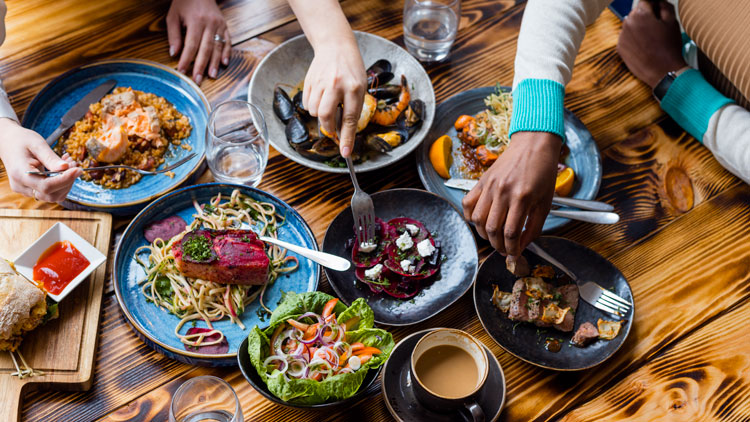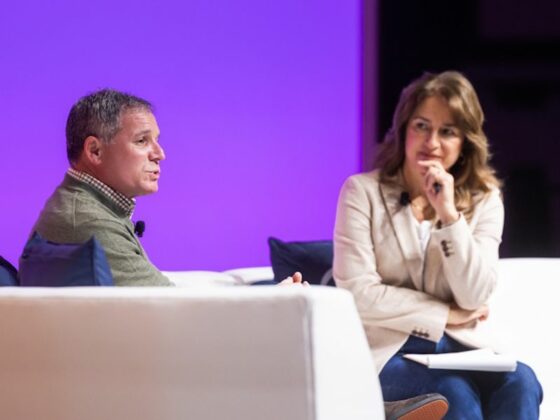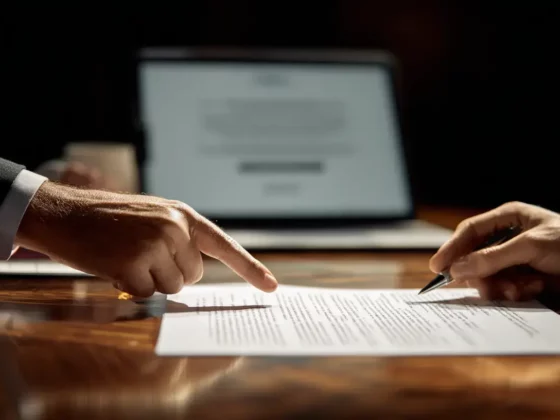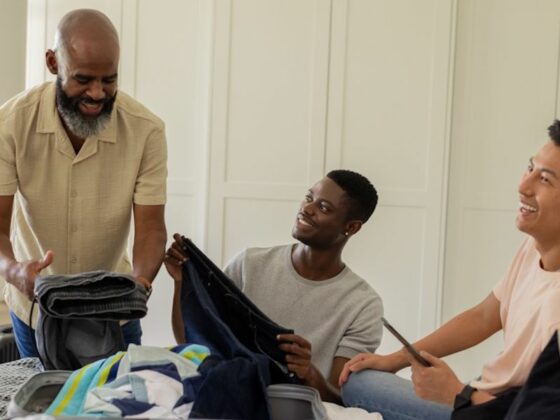
Usually it’s the food critics moaning about small plates, but now it’s the chefs?
One chef in particular. Hugh Corcoran, who recently opened 17-seat The Yellow Bittern restaurant on Caledonian Road in Islington, created a bit of a social media storm when he hit out at customers seemingly taking advantage of the restaurant’s hospitality by sharing dishes meant for one person.
What did he say?
Corcoran blamed the popularity of small plates in restaurants, which he says has led to some diners looking to share every dish, even those not made to be shared. “Little sharing plates has ruined dining. Or rather it has ruined diners. It is now apparently completely normal to book a table for 4 people say and then order one starter and two mains to share and a glass of tap water,” he wrote on Instagram. “There was at one point an etiquette in restaurants that if you booked a table in a nice place you at the very least had to order a main course (and possibly even a starter or dessert) and drink wine in order your table to be worth serving,” he added, pointing to the effort the restaurant makes in dressing the table, picking and arranging the flowers, polishing the glasses, and bristling at a two-hour booking ending up costing just £25 a head. “It’s not worth us opening. When you come to a restaurant, it is expected that you are there to eat and drink with some sort of abandon.”
What has been the response?
The battle lines have been predictably drawn between restaurateurs, many of which seem to agree with Corcoran’s points judging by the number of likes on his posts, and diners, who have taken umbrage in being told that every meal out needs to be a Bacchanalian feast (almost) in order to make it worthwhile for the restaurateur. In response, French restaurant La Bete Noire sympathised with Corcoran, saying: “It is tiring and uncomfortable for the front of house to have to explain that people need to eat and drink in order for the restaurant to be able to afford staying open.” Members of the general public have been less charitable, however, with one asking: “Is Hugh Corcoran the most dislikeable man in food right now?”
Does the restaurant have a point?
Yes and no. The Yellow Bittern is open for lunch only so you can see Corcoran’s point that he needs to make every diner count, and in this climate people sharing a main dish between them and ordering tap water is not going to keep the lights on. He says that a ‘normal’ meal of at least one plate per person and perhaps a few glasses of wine or a dessert at The Yellow Bittern will cost somewhere between £40 to £100 a head, which doesn’t seem unreasonable for a restaurant such as his – anyone wanting to spend less can opt for a more casual dining experience. However, it is his comment that people should “justify your presence in the room that afternoon” that has struck a nerve with some. “This justification of one’s presence is something which I have always been acutely conscious of whether it be a docker’s bar in Belfast or a Michelin starred restaurant in the Basque Country,” says Corcoran. “I do not suppose the right to be anywhere except on the public highway. Restaurants are not public benches, you are there to spend some money. And in the case that a plate of radishes is enough for you and your three friends for lunch, then perhaps an allotment would be a better investment than a table at a restaurant.” This position would seem to go against what some restaurateurs would class as basic hospitality.
Why is it such a problem?
Rising costs across the board have made running a restaurant increasingly challenging, and restaurants such as The Yellow Bittern are coming victim to a changing use of restaurants from some customers who still want the experience of eating out but who can’t afford to do it at a level that helps the restaurant. In The Yellow Bittern’s case the challenge is more acute because it is only open for lunch, where spend on wine and food is typically lower than in the evenings, when many restaurants make the bulk of their profits, and it only has 17 seats, so every one needs to count.
What’s the solution?
Corcoran is unequivocal in what he thinks is the solution. “We can either jack up the prices, punishing everyone else for those who don’t play by the rules, or simply not have our types of tiny, family run restaurants anymore,” he states on Instagram. Others, meanwhile, have suggested considering shifting the menu to a set lunch price and making it clear that the offer is for one person only to eradicate the practice of people sharing dishes. Politely introducing a minimum spend, as is a practice in restaurants in Thailand and China is another option.
Problem solved…
Possibly. But Corcoran’s points open up a philosophical debate on the role of restaurants and who they are there to feed and how external factors impact on this role. While it’s not unreasonable to expect diners to contribute effectively to the costs of running a restaurant, in this climate it is also to be expected that not everybody who eats out necessarily will. Restaurants that offer a la carte will often factor this into their business model, but with small places this is often impossible, as Corcoran’s plight highlights. Indeed, the whole episode calls to mind a scene from Curb Your Enthusiasm (below) where Larry shares some of his food from the all-you-can eat buffet and almost gets into trouble before an attorney steps in to help. The message for restaurateurs? Make it crystal clear in advance your expectations of your diners. And for diners? Always go out to eat with someone from the legal profession.








